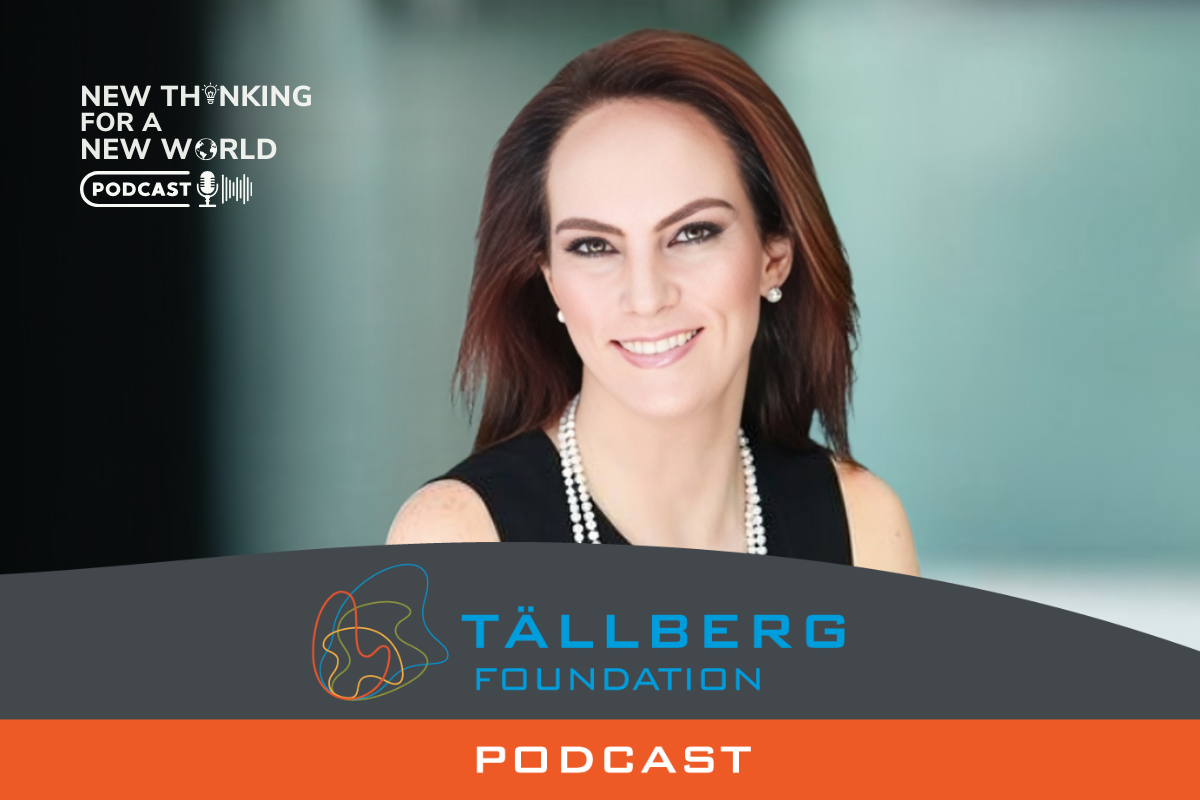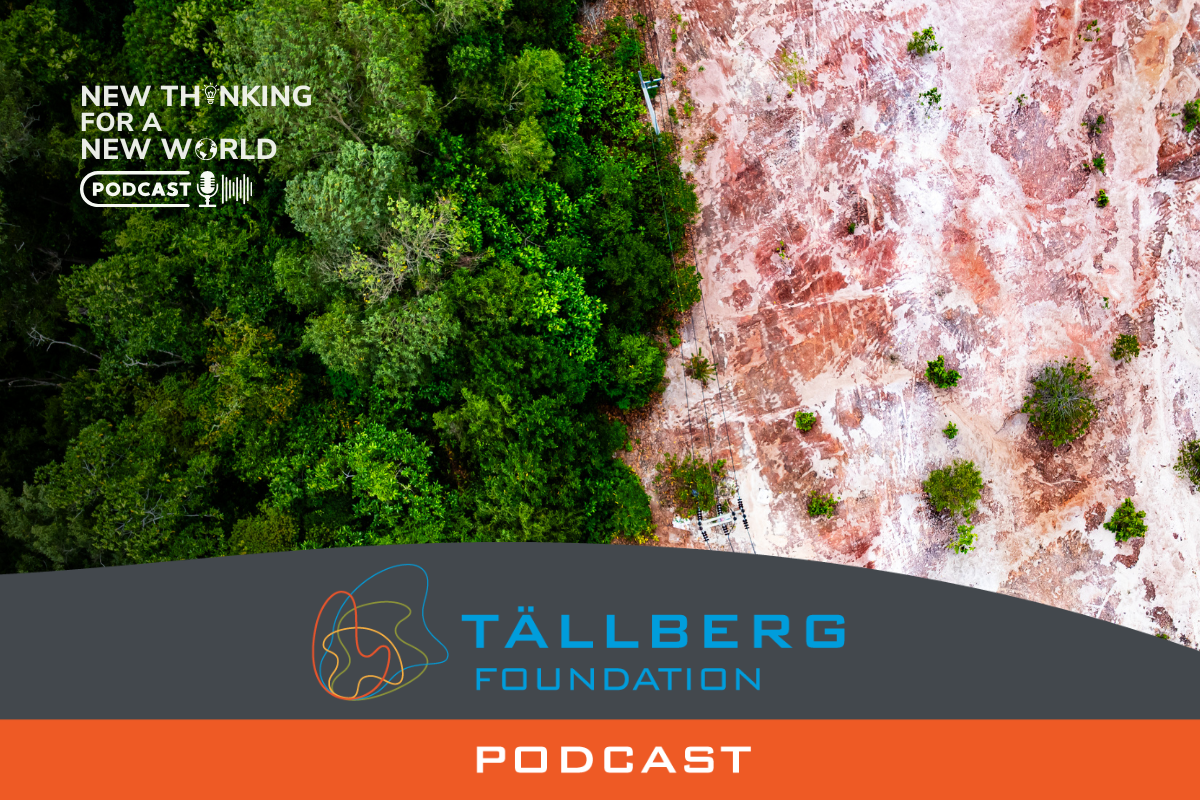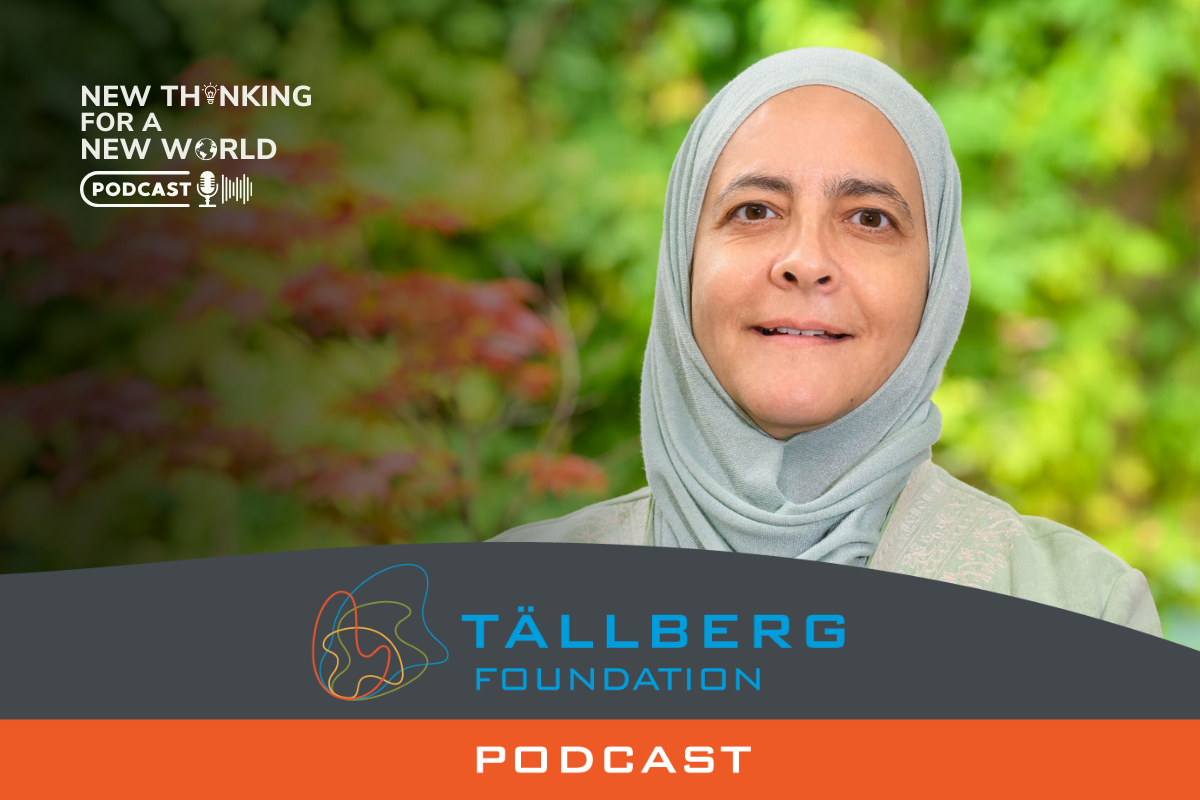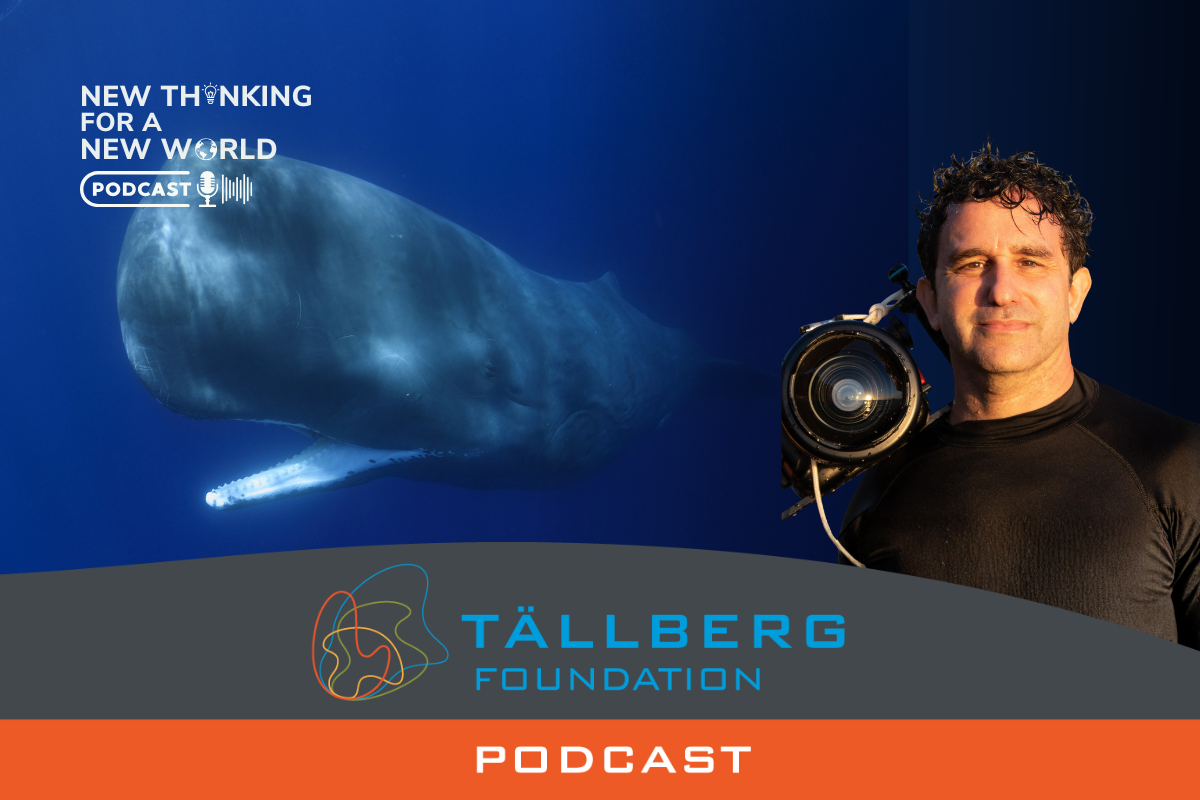“For the first time in human history, we face a planetary emergency.” Those words were written by Johan Rockström, Director of the Potsdam Institute for Climate Impact Research. Scientists tend to be sober, measured in their assessments and with a preference for others to draw the big picture conclusions. So, when an earth scientist as distinguished and accomplished as Rockström writes that “Human pressures on earth have reached dangerously high levels” which could imperil humanity’s survival, we should listen.
Are you listening? If so, what do you think? And, more importantly, what are you going to do?
Listen to the episode here or find the New Thininkg for a New World podcast platform of your choice (Apple podcast, Spotify, Stitcher, Google podcast, Youtube, etc).
ABOUT OUR GUEST
Prof. Dr. Johan Rockström is the Director of the Potsdam Institute for Climate Impact Research and Professor at the Institute of Earth and Environmental Science at Potsdam University.
Rockström is an internationally recognized scientist on global sustainability issues, who led the development of the new Planetary Boundaries framework for human development in the current era of rapid global change at the Stockholm Resilience Centre. He is a leading scientist on global water resources, with about 25 years of experience from applied water research in tropical regions, and more than 150 research publications in fields ranging from applied land and water management to global sustainability.
In addition to his research endeavors, which have been widely used to guide policy, Rockström provides strategic scientific guidance as a member of the European Commission’s Expert Group ‘Mission Board for Adaptation to Climate Change, including Societal Transformation’ and the ‘Royal Swedish Academy of Sciences’ and consults several governments and business networks. He acts as an advisor for sustainable development issues at noteworthy international meetings, such as the World Economic Forum, the United Nations Sustainable Development Solutions Network (SDSN), and the United Nations Framework Convention on Climate Change Conferences (UNFCCC). Furthermore, he chairs or co-chairs the advisory board for the EAT Foundation, the Earth Commission, and the Earth League, is Chief Scientist of Conservation International, member of the European Investment Bank Advisory Group, and elected member of the German Academy of Sciences Leopoldina.




What are we waiting for?
Here you find my personal comments on the interesting podcast:
Thank you Johan and Alan for the podcast with engaged sum up of current state of the long and winding road of climate change. We can all agree that we now are facing a global climate emergency and a code red situation. The journey that you describe is well known. But we are sorry to say yet in a stand still on actual international and national solutions. IPCC and science call for actions are not met by visual and urgent necessary political accountability. We see a lot of aggregated Climate Change Management – but what do we actually mean by global Climate Change Leadership?
Scientists and politicians still place their trust in ground breaking international policy agreements, COP-meetings, climate budgets, behavioral changes and technological paradigm shifts. This approach on top-down just in time high complex solutions have not been successful. We are running out of time. Maybe we are waiting for a train that already left the platform. We need to enter a new approach on a global bottom-up viewpoint. The international Transition movement and other radical social and environmental organizations see alternatives through civil society, local collaboration, complementary local competences, enthusiasts, imagination, innovation, ideas and local community processes. This creates the basis for adding locally adapted credible sustainable alternatives for resilience in humanity and planet Earth. The perspectives at hand encompass future generations, and in the long run all life on the planet. Crucial damages facing climate threats and social crises occurs mainly in all kinds of local communities.
We know the time of ‘business as usual’ is over, that we must transform the present in order to create a sustainable future. If we are to make the changes the climate emergency demands of us, the next 10-15 years will be a time of social, cultural, economic and political transformation almost without precedent. It will be a time when our imagination needs to be invited, valued and empowered.
(Transition network, 2019)
In January 2022 my book on climate emergency “Tid att skapa nya kartor” was published. The English edition “Time to Create New Maps” will hopefully enter the market later this year. The book is about local community transition for human sustainability in a perspective of climate threats and societal crises. It deals with the profound international difficulties in making the necessary political decisions for the climate, which will affect the global economy, regional and national social structures and critical living conditions for humanity. The book is based on the need for a complementary bottom-up-transition strategy in perspective of global local communities and civil societies. The reader is gradually invited to consider a new terrain and draw new maps to meet these challenges. We need a reset. We need to step back and look for emerging patterns and imagine new thinking for creating resilient local communities, societies and humanity. Many irreversible climate processes have already started. However, a lot can still change by defining the actual terrain with a new set of maps. What are we waiting for?
Code Red needs a Recode. From Top Down to Roots Up, unraveling the geopolitical riddle is an economic one that needs something Simpol (Simultaneous Policy). When Citizens hold Leaders accountable by withholding the one commodity they can’t afford to lose (the vote) unless their preferred Leader agrees to implement legislation on behalf of a key issues affecting us all … and when a large enough number of Leaders on ANY side of the political divide sign the pledge to uphold this if elected (at risk of losing said vote to their competitor who Does sign the pledge) … this tipping point ensures that a majority of SIGNED Leaders now occupy the global playing field, thus assuring that whomever ultimately wins will be obliged to implement key policy. Thus the wave of pledged politicians grows internationally (and rapidly). Simpol’s rare voice also accommodates national sovereignty so that only issues at the global level are addressed (e.g. Climate Crisis). There is no better time to engage both Leadership & Citizenship on behalf of keeping our fragile worldwide ship afloat. And no better apolitical tool to do so than with simpol.org.